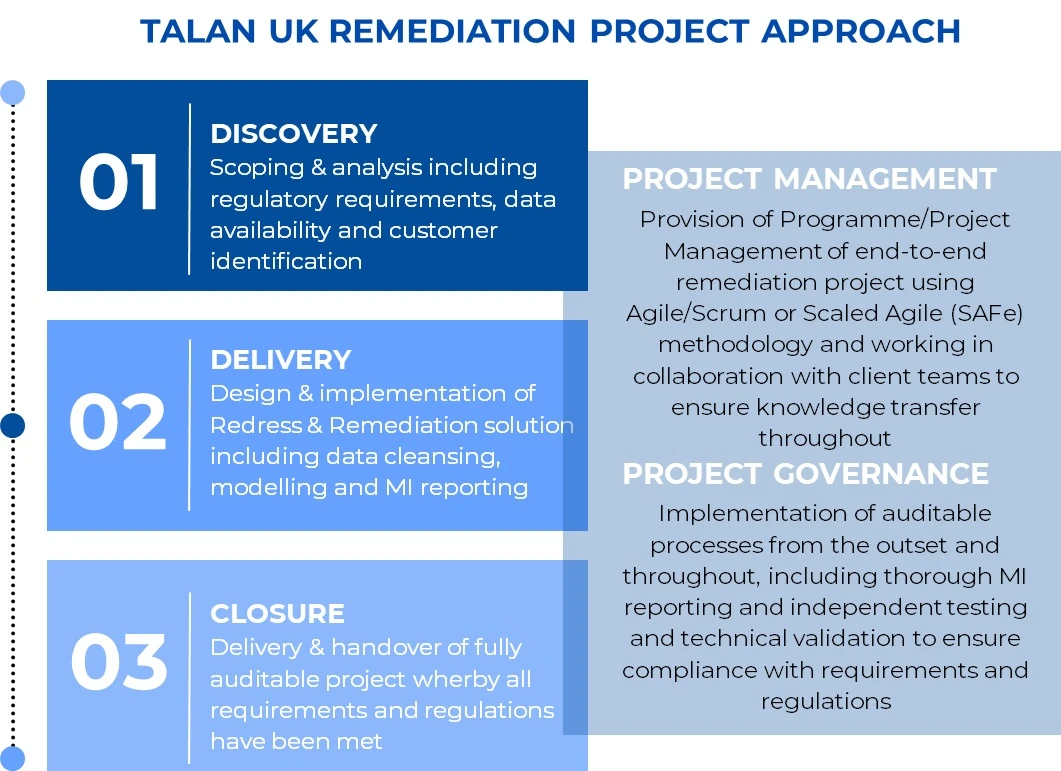Monday 20 May 2024
Using AI in Redress and Remediation: Preparing for the Car Finance Mis-selling Regulations

Charlene MCLAUGHLAN
Head of Sales and Marketing (Talan Data UK)

With 20+ years of experience under our belt, Talan UK knows what it takes to execute a successful redress and remediation programme from start to finish, avoiding common pitfalls whilst optimising time and effort.
In September 2024, the FCA will announce its ruling on Discretionary Commission Agreements (DCAs) which could impact the Car Finance industry by up to £16billion and has been dubbed as ‘the next PPI’. Talan UK understand the complexities and challenges of complying with financial regulations at this scale and are working with our existing clients to get prepared ahead of September’s ruling by:
- Understanding the organisation’s exposure and risks
- Determining scope and budget to support the associated Redress and Remediation project
- Assessing the potential to adopt AI and emerging technology on each stage of the project to reduce costs and expedite efficiency.

High profile customer remediation cases like this not only cost companies in potential fines, consumer compensation and allocation of internal resources, but also create significant reputational damage. Therefore, acting fast and working efficiently won’t just save on operational costs but can provide a positive experience for your consumers, assuring them that you are acting in their best interests and setting you apart from competitors.
Talan UK have a wealth of experience in the entire lifecycle of a redress and remediation project. Let’s have a look at what elements of the Discovery stage are prime for AI solutions…
Scope Estimation
Predictive analytics models can estimate the scope of redress by analysing historical data patterns and extrapolating potential impacts. Machine learning algorithms can forecast the number of affected accounts and the expected financial implications based on available data.
Understanding Legislation
Natural Language Processing (NLP) tools, like Talan’s own AI accelerator solution can parse regulatory documents, extracting and prioritising key provisions pertinent to the remediation project.
Data Discovery
AI-powered platforms employing machine learning techniques such as classification, association rule mining, and clustering can sift through vast datasets to identify accounts requiring redress. Use of Python packages such as Dedupe can be used to remove duplicate accounts and identify links between tables where there is no obvious customer link or where other information may be in slightly different formats.
Data Inventory
AI-driven cataloguing tools can centralise data sources employing metadata analysis and semantic search capabilities. Techniques like automated data discovery using machine learning algorithms streamline this process.
Coming Soon...
In part two, we will highlight which areas within the delivery phase of a Remediation Project are prime for efficiency gains through AI and ML.
Don’t hesitate to get in touch for more information on how Talan UK can help you get prepared ahead of September’s ruling.

